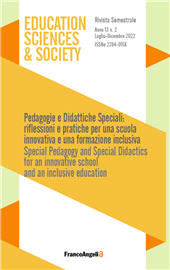Sexism and Traditional Masculinity in Country Music : practicing Inclusivity and Innovation in Research and Education
72-90 p.
This paper discusses an effort in inclusivity and innovation in (higher) education by reporting on the results of a research study on popular culture that was conducted jointly by a student and a professor. The study focuses on sexism and traditional masculinity in contemporary country music lyrics to examine the portrayal of conventional heterosexual relationships and its potential impact for gender relations. The methodology involves an analysis of the lyrics of the most popular country music songs in 2019 and 2020 to investigate the presence of benevolent sexism, hostile sexism, traditional masculinity, and heterosexual relationships. Additionally conducted was an analysis of the relative proportion of sexist songs and its distribution by gender of the performing artist. Results show that a majority of contemporary country songs display sexism and, even more so, traditional masculinity.
While songs by female country artists were found to oftentimes rebuke sexism, songs by male country artists promote them. Through its successful execution, this collaborative study shows the value of practicing inclusivity and innovation in research and education, which institutes of learning should promote. [Publisher's text].
This paper discusses an effort in inclusivity and innovation in (higher) education by reporting on the results of a research study on popular culture that was conducted jointly by a student and a professor. The study focuses on sexism and traditional masculinity in contemporary country music lyrics to examine the portrayal of conventional heterosexual relationships and its potential impact for gender relations. The methodology involves an analysis of the lyrics of the most popular country music songs in 2019 and 2020 to investigate the presence of benevolent sexism, hostile sexism, traditional masculinity, and heterosexual relationships. Additionally conducted was an analysis of the relative proportion of sexist songs and its distribution by gender of the performing artist.
Results show that a majority of contemporary country songs display sexism and, even more so, traditional masculinity. While songs by female country artists were found to oftentimes rebuke sexism, songs by male country artists promote them. Through its successful execution, this collaborative study shows the value of practicing inclusivity and innovation in research and education, which institutes of learning should promote. [Publisher's text].
Fait partie de
Education Sciences & Society : 2, 2022-
Articles du même numéro (disponibles individuellement)
-
Informations
Code DOI : 10.3280/ess2-2022oa14508
ISSN: 2038-9442
DISCIPLINES
KEYWORDS
- Country music, Gender, Music,, Popular culture, Sexism
- Country music, Gender, Music, Popular culture, Sexism


